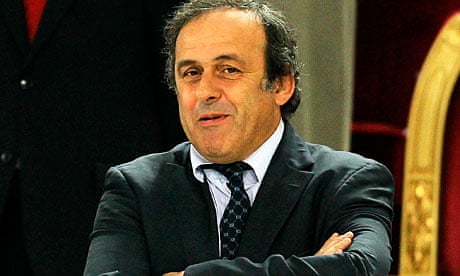Roman Abramovich's preparedness to spend £50m on Fernando Torres has come as a surprise and as a blow to Uefa. The Chelsea owner has been viewed by Uefa mandarins as a key proponent of its financial fair play regulations, which will seek to limit clubs' losses to €45m (£38.7m) over a three-year period that began this season.
Chelsea's chairman, Bruce Buck, has even gone as far as to speak in favour of extending Uefa's rules to a salary cap, yet how the Premier League champions would intend to square the Torres business with the current regulatory environment is unknown. One Uefa insider described the willingness to bid £50m for a single player as "a worrying sign".
Chelsea yesterday released a set of highlights of their 2010 accounts, showing losses had risen from £47.4m in 2009 to £70.9m in the 2009-10 season. This is problematic for Uefa, since Chelsea are not the only club whose finances are in need of repair and there has been a trend across Europe for big-money transfers this January.
With Manchester City having spent £27m last month they would seem to be on course to eclipse Chelsea's £141m record losses for a Premier League club. If that comes to pass, it would almost certainly put them in default of Uefa's rules. Michel Platini will be resolute. He warned three weeks ago that such clubs face being banned from Europe. "It will be time for them to face the music if there is a club that doesn't fall in line," said Uefa's president.
Transfer tap turned off
February is seldom a month to bring many people much cheer but this year for Championship clubs on the breadline, it will be tougher than ever. That is the view of Geoff Mesher, a forensic accountant whose Transfer Tracker has been watching the diminishing trickle-down from the Premier League to the rest of the football pyramid with a wince. By 6pm yesterday less than £12m of top-flight cash had reportedly filtered down to the three other divisions. "Lower‑league clubs have always budgeted for transfer revenues," Grant Thornton's Mesher told Digger, and these have now dried up. Also: "There is a squeeze on sponsorship revenues, concessions and merchandising. All these things together will make for a difficult time for the majority of clubs."
Leeds in loan dilemma
Leeds United do not own Elland Road. A firm called Barnaway bought the freehold for £8m during the club's financial meltdown in 2004. Although this later passed to a British Virgin Islands shell company, Teak Commercial, the Leeds chairman, Ken Bates, has always been emphatic that Leeds do not own their ground. The reason Digger mentions all this is that Leeds are approaching Leeds City Council for loans to redevelop Elland Road. That seems like it would be a bit of a risky investment. Land Registry records show that Teak Commercial still holds the title to the ground, so no one else – apart from Barnaway's sole shareholder, Jacob Adler – knows who owns Elland Road. And according to the most recent accounts for Leeds United Holdings, the club's parent, there are only £2.5m of fixed assets in the club. So if the council wanted to secure its loans against club property it might find it difficult to get proper cover. Digger asked Leeds United's chief executive, Shaun Harvey, for his view yesterday but he did not call back.
Coe's grounds for concern
The Association of British Athletics Clubs, a splinter group, has a reputation for plain speaking. Whereas UK Athletics, the sport's official governing body, has swung behind West Ham United's bid for the 2012 Olympic Stadium, ABAC believes that decision to be flawed. "The true reason for those touting the legacy myth is to save face over the wholly unrealistic promises made in Singapore by the Olympic bid team," said ABAC's coaching officer, John Bicourt – a double Olympian. UKA responded: "The entire current GB team have given their backing to West Ham's bid." And as Bicourt hinted, The hopes of Lord Coe, left, ever becoming the International Association of Athletics Federation's president would also seem to depend on it.
